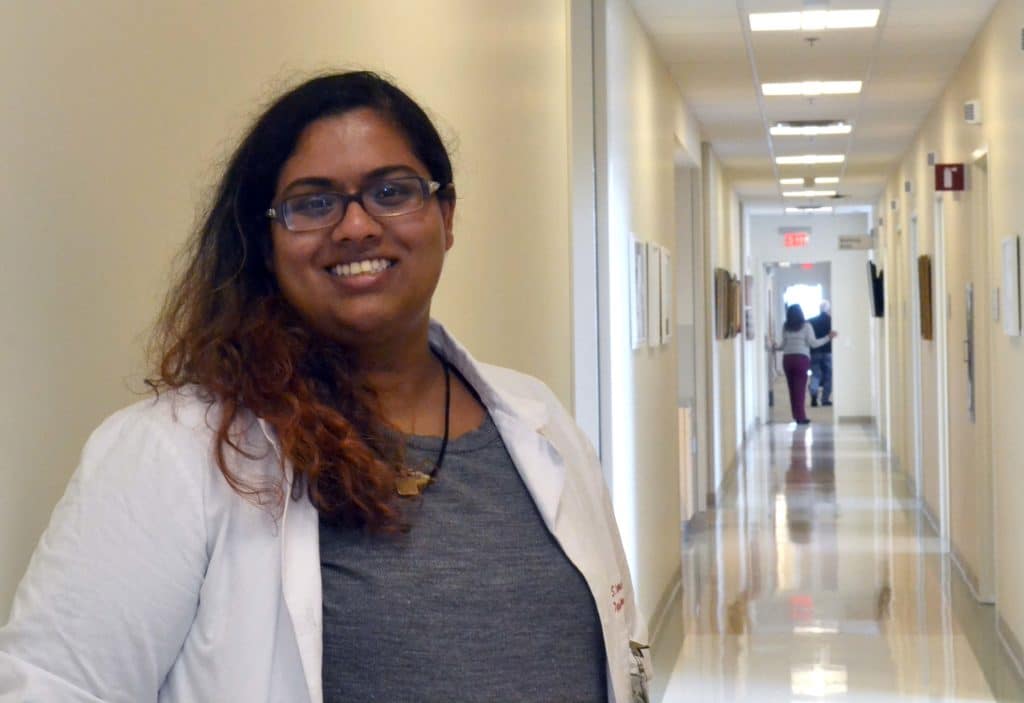By Joyce Lee
If you walked into the Penn Memory Center clinic on a Monday afternoon this past year, you probably saw Seetha Chandrasekhara, MD, helping both patients with memory problems and their loved ones.
A Geriatric Psychiatry Fellow with the University of Pennsylvania Department of Psychiatry, Dr. Chandrasekhara joined PMC in the summer of 2017 after completing her psychiatry residency at Temple University. Her time at PMC was a core yearlong rotation as part of the program, “because geriatric psychiatry involves a lot of dementia and management of the behaviorial symptoms of dementia,” she said.
At PMC, Dr. Chandrasekhara trained with senior physicians in the clinic, including neurologists and geriatricians, to learn about the diagnosis and treatment of memory problems.
“It’s really important that medicine in general be a team effort, regardless of what specialty or subspecialty you are in, that everyone works together in order to provide the best care for patients,” she said.
She pointed to recognizing the presentation of a patient with dementia, including understanding the clinical variants, and the interpretation of brain imaging as two important clinical skills she learned in her past year here. She also noted the close working relationship with the PMC social work team has given her insight into the resources they can provide.
An especially memorable learning experience for Dr. Chandrasekhara this year was understanding how to approach discussing an Alzheimer’s disease diagnosis with a patient.
“Coming from psychiatry, I know how to manage emotions, but not necessarily in this setting,” she said. PMC neurologist Sanjeev Vaishnavi, MD, PhD, her main clinical supervisor, has been “exceptionally helpful” in training her in this aspect, she said.
She has also found PMC to be a robust environment for learning about the latest research in cognitive decline.
“Where I came from, I wasn’t really involved with the research,” she said. “But here, it’s nice to know about Generation’s research project and the Aging Brain Cohort study — what are the things that they’re looking at, what are the markers available already because of the research, what are the imaging available, what can be done, what can’t be done.” This has helped build her “clinical toolkit,” she said.
She has deeply appreciated “having a full year to go in depth and learn about the different neurocognitive disorders and the different treatments available.”
After her fellowship year concludes in June, Dr. Chandrasekhara will be joining Temple University as an Assistant Professor of Clinical Psychiatry and Behavioral Science. The next geriatric psychiatry fellow will be joining the PMC clinical team this fall.
